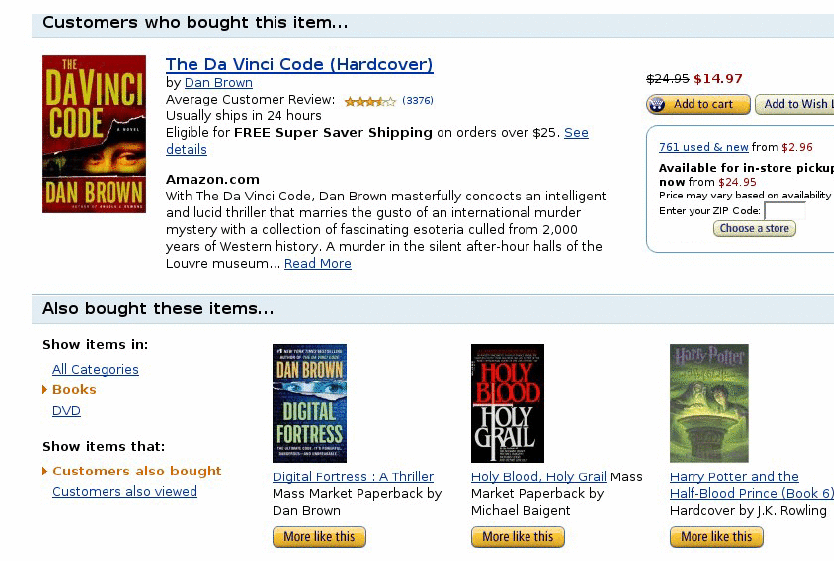If you like the Da Vinci Code you'll like ...
Here's a screenshot of a recommendation made by Amazon's wonderful book recommender. This shows the classic collaborative filtering (CF) algorithm at work: "Customers who bought the Da Vinci Code also bought these items ... " It is a great way to get recommendations, but sometimes it can go awry. Here we see three recommendations. The first two recommendations seem quite reasonable: Digital Fortress is a book by the same author as the Da Vinci Code, Holy Blood Holy Grail is a book about the same subject matter as the Da Vinci code. The 3rd recommendation - the 5th Harry Potter book, seems rather strange. It is a book written for a completely different demographic - middle schoolers and young adults, it is a fantasy about school kids and has very little similarity to an art history thriller such as the Da Vinci Code. So what gives? Is the Amazon recommender broken? Nah ... it is doing it's job just fine. The Da Vinci Code and Harry Potter and the Half-Blood Prince do have one thing in common. They are both very popular books and they happened to be very popular at the same time. When mom would go to Amazon to order a copy of the Da Vinci Code, she would also pick up a copy of Harry Potter for the kids. This was repeated thousands of time, and the Amazon recommender duly noted the correlation. From a shopper's perspective, it is probably a pretty good recommendation. Amazon knows that if you buy this book, based on its data, there's a 5% chance that you'll pick up the latest Harry Potter as well. However, from a book reader's perspective, this is probably a poor recommendation, the books have little in common.
A recommender for shopping is not the
same as a recommender for discovery. If you are shopping for
books, Amazon is the place to go, but if you are looking for a good book
to read, you may want to use a recommender like LibraryThing that recommends books based on who has read a book as opposed to who has purchased a book.

Posted by TigerFist on May 25, 2007 at 10:22 AM EDT #
Posted by Tim Spalding on May 27, 2007 at 05:45 AM EDT #